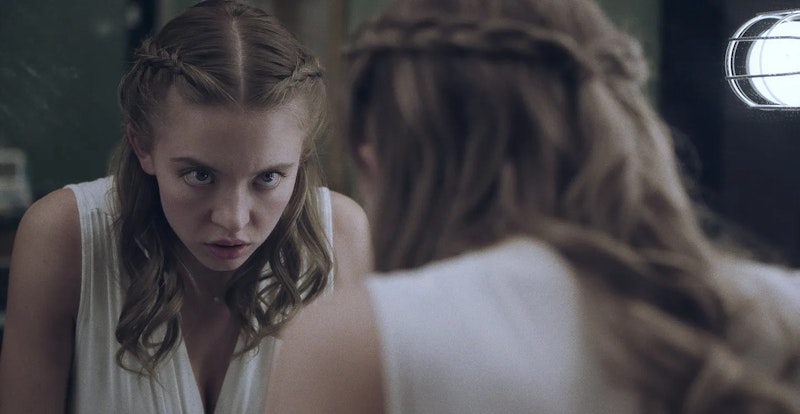Go to a movie theater now. Not a superhero in sight. Marvel will implode soon, a victim of its own success, over-saturation, people moving on—the most natural thing in the world. While MCU and DC(EU?) films continue to be produced, announced, and scheduled, their reign is over. Even barring catastrophic collapse in the United States, I doubt people will return to Spider-Man and the Avengers for comfort. The films of the future will be blunt, cruel, and obvious, satisfying the demands of an increasingly illiterate, impatient, and intemperate population. Maybe they won’t go the movies, but parents still take their kids to the movies, and if you’re young enough and inclined, it’ll remain a lifelong hobby, maybe a career. That’s what will sustain the form of the narrative feature film as we’ve known it for nearly a hundred years.
In 2027, when sound celebrates its centennial, will we still be in the throes of yet another cycle of exploitation-lite? Ever since the turn of the century, pop culture has refused to reiterate new decades, instead cycling through the 1970s, 1980s, and 1990s. It’s all very inbred, and the only “innovation” in the last 10 years has been the conversion of character into vessels for various political cause celebres. It’ll be remembered with scorn just as the cheesy orchestral synthesizer scores of the 1980s date the films they belong to so badly.
Among the many qualities that made the films of the 1970s so great worldwide was their music. Just last week, I reviewed Rose Glass’ Love Lies Bleeding, but neglected to mention the rollicking and adrenalized score by Clint Mansell, one worthy of Michael Small. That movie had a bit more going on than Immaculate, but this new nun movie starring Sydney Sweeney has no pretensions towards anything but grindhouse glee. It’s not Schoolgirls with Chains, but I’m glad Sweeney’s a movie star in a time when the tide is turning towards more challenging, original films across the American marketplace. We’re not in the 1990s, but what will these early years of the 2020s look like in 2027? What movies of our first quarter-century will be incorporated into the pre-show bumpers?
All I knew going into Immaculate was that Sweeney met director Michael Mohan and writer Andrew Lobel in 2014 when they were initially trying to put the movie together. She auditioned, but the financing fell through. She remembered them, and their script, and a couple of years ago called them up and now they’ve made it. Immaculate is a brisk 89 minutes, with about nine minutes of credits, with the songs and music cues all the way at the end. I stayed to make sure that they used Bruno Nicolai’s theme from The Red Queen Kills Seven Times, easily the most thrilling part of this quickie horror movie. Just two years ago something like this—starring Selena Gomez, perhaps—would’ve seemed absurd, offensive to some people. Now it’s another feather in Sweeney’s cap, and a boost to the careers of Mohan and Lobel.
Simona Tabasco, best known in the States for her the second season of The White Lotus, opens the movie, the very unlucky “first girl.” It was charming how Sweeney affected no accent nor broad caricatures of trauma—this is just a fun nun horror movie, with some great practical special effects and a wicked ending that definitely wouldn’t have been produced five years ago. A qualified taboo broken, a risk taken for a public Hollywood is finally convinced is ready for more brutality, more gore, more death in their theaters and at home. Well, that’s what movies were made for. Leave the superheroes to their comic books.
—Follow Nicky Otis Smith on Twitter and Instagram: @nickyotissmith

